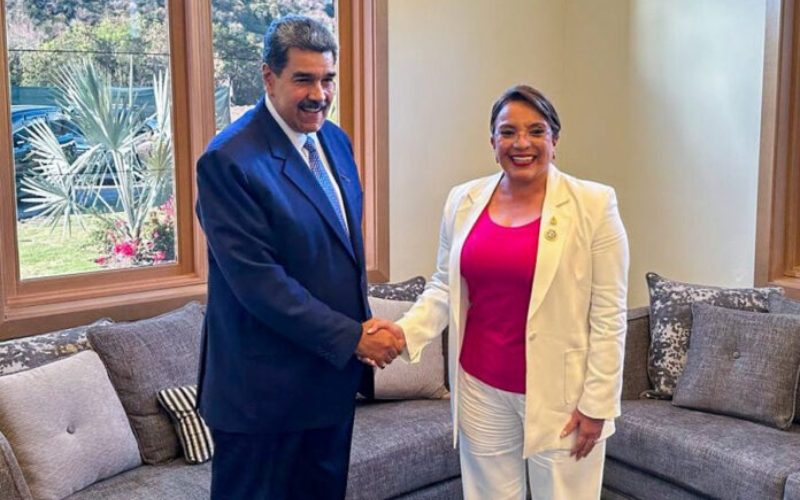Honduran President Xiomara Castro has openly shown her backing for Venezuelan leader Nicolás Maduro, an action that has generated political consequences both domestically and globally. This announcement occurs amidst ongoing serious allegations by the United States and other nations against Maduro, accusing him of connections to drug trafficking and international criminal organizations.
Statements from authorities and effects on diplomacy
During her speech, Castro expressed solidarity with the Venezuelan leader without directly referring to the allegations against him. In international forums, Maduro has been accused of being part of structures linked to illicit drug trafficking and money laundering, which complicates Venezuela’s relations with much of the international community.
For Honduras, this announcement introduces a fresh aspect to its international relations strategy. Experts caution that associating with a widely scrutinized partner might impact ties with Washington and other essential allies, especially considering that the Honduran economy significantly relies on global assistance and private investment to support its progress.
Reactions from the opposition and civil society
Castro’s position was strongly criticized by opposition sectors, who believe that the endorsement compromises the country’s efforts in the fight against drug trafficking. Political leaders pointed out that this alliance could project an image of ambiguity on an issue that has historically affected Honduran institutions.
Civil society groups, on their side, have requested the executive for clarifications concerning the extent of this backing and its potential impacts on governance and global collaboration. In their comments, diverse citizen collectives urged the government to adopt a defined stand regarding organized crime and to dissociate from individuals facing legal challenges internationally.
Regional context and political tensions
The choice made by Castro occurs within a regional landscape characterized by political divisions and discussions about the legitimacy of administrations accused of breaching human rights or having connections to illegal economies. In this setting, the move closer to Maduro is seen as a diplomatic shift that diverges from the attempts of other Central American countries to enhance collaboration with international bodies concerning security and development topics.
The presidential approval also happens in a nation where drug trafficking has deeply influenced political affairs. Honduras is still contending with the aftermath of the legal cases involving prominent individuals associated with drug trafficking, which has brought the topic to the forefront of public discussion. Within this scenario, Castro’s remark gains particular importance and becomes an element in the discussion about the consistency of the government’s narrative regarding security issues.
Challenges for institutions and the private sector
The presidential statement opens a debate on the limits of Honduras’ foreign policy and its ability to maintain international relations without jeopardizing cooperation on security and development. The opposition, civil society, and the international community are closely watching the evolution of this support, aware that it could redefine the country’s position in the region.
The difficulty faced by the government is in aligning its foreign policy approach with domestic calls for openness and dedication to democratic institutions. Meanwhile, the private sector continues to be crucial in creating jobs, drawing in investment, and maintaining economic stability, especially in a situation where political choices can influence business confidence and the nation’s capacity to join global value chains.
The path Honduras chooses will be decisive for the future of governance and for the international perception of its role in the fight against drug trafficking and organized crime, as well as for its ability to project a modern and competitive economy.
